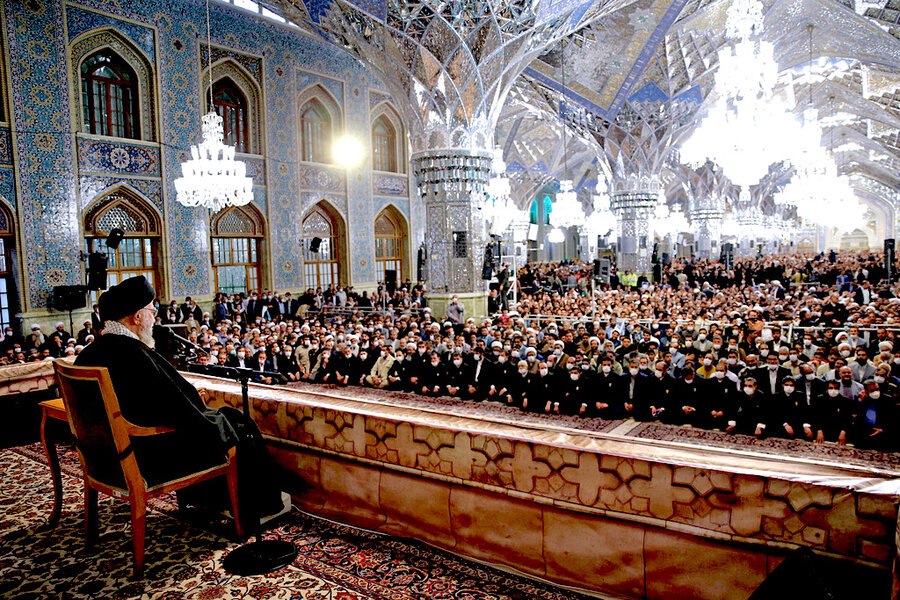In Iran and Israel, a march to equality
Loading...
Although they are archrivals around the Middle East, Iran and Israel have experienced something in common over recent months. Both have faced mass protests in favor of equality before the law for all citizens, free of religious-based rule. For each, the results of this domestic struggle could influence the future of their external conflicts.
On Monday, protesters in Israel finally won the day after the government delayed legislation that would have eroded judicial independence as a political favor to ultra-Orthodox Jews in the ruling coalition. For now, Israel’s largely secular, democratic rule will continue in a country with a mix of ethnicities, faiths, and nonbelievers.
In Iran, the struggle for equality against the existing sectarian rule under a single Islamic cleric – supreme leader Ayatollah Ali Khamenei – has evolved from one that is less confrontational and more inspirational.
The mass protests that began in Iran last September after the death of a woman in police custody over her improper head covering were largely suppressed by January – except in one of Iran’s poorest provinces, Sistan-Baluchistan. In the capital Zahedan, protests have continued every Friday following the sermons of Iran’s leading Sunni cleric, Mowlavi Abdolhamid Esmailzehi, imam of the Grand Makki Mosque. His sermons, largely a call for secular rule based on honesty and listening, have gained a wide following among Iran’s majority Shiites.
“One religion cannot rule the country,” he said in his March 17 sermon, for example. He has called for an internationally monitored referendum in Iran to determine the type of government based on equal rights.
“Reform is not possible without criticism. Where there is no criticism, there is tyranny. Autocracy and dictatorship is the biggest danger to humankind,” he said in another sermon.
“This great nation is made up of various colors, like a rainbow. The religious view could not implement equality among these colors. Today, our country has faced a deadlock in terms of international and domestic policies; all these deadlocks are fruits of this religious point of view,” he said.
When, according to news reports, the supreme leader ordered that Mr. Abdolhamid “should not be arrested … but should be disgraced,” the preacher responded, “God gives honor and dignity, not anyone else.”
The government’s suppression of the nationwide protests was particularly harsh in Sistan-Baluchistan, site of the single deadliest day during the protests. On Sept. 30, dozens of people were killed. Mr. Abdolhamid does not incite the people to protest but rather appeals to their ideals. “Honesty and truth save the people,” he says. As one protester in Zahedan put it, “During the first days of the protests, people were driven by anger and outrage. Today it’s a mix of anger and ideals.”
To a remarkable degree, the protests and the sermons of Mr. Abdolhamid have already united Iranians across ethnic and religious divides. That feeling of equality is not yet represented in Iran’s autocratic, sectarian rule. But its existence is a sign of what Iran can become.







